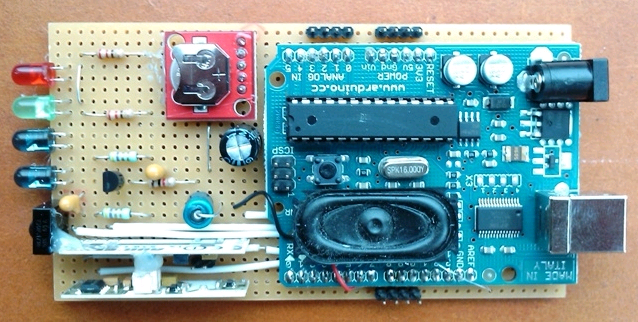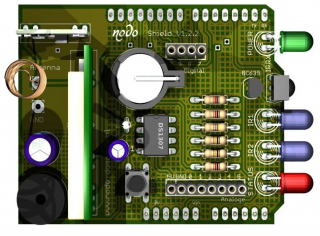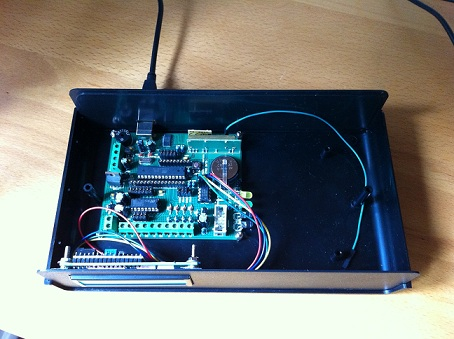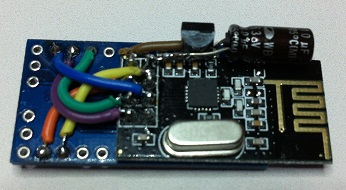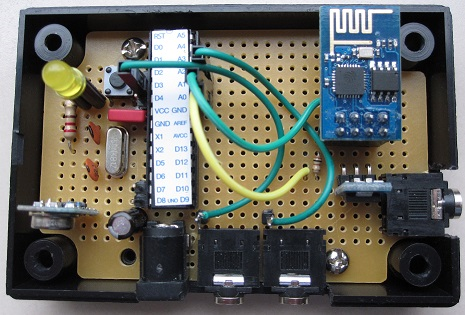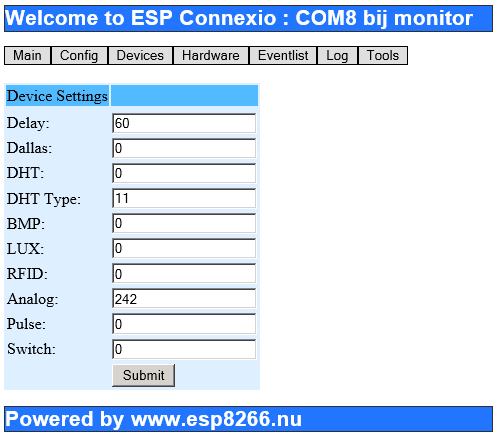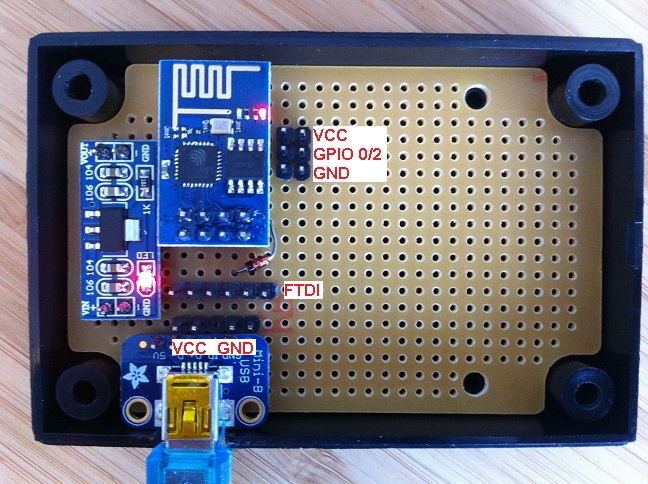Difference between revisions of "History of ESP Easy"
m |
|||
| Line 28: | Line 28: | ||
(although it's now running RFLink firmware and controlled by ESP Easy rules...) | (although it's now running RFLink firmware and controlled by ESP Easy rules...) | ||
| + | |||
| + | =Mar 2012 - Nodo Mega= | ||
| + | |||
| + | Beta Nodo Mega released, based on Arduino Mega 2560 board with Ethernet Shield. Using a hosted web application. | ||
=Jan 2014 - Exploring new Wireless capabilities= | =Jan 2014 - Exploring new Wireless capabilities= | ||
Revision as of 16:24, 11 June 2017
The history of ESP Easy finds its origin within the Nodo Project. Although the first Nodo code port experiment (ESP Connexio) is abandoned, the current ESP Easy project inherits lots of code snippets and the plugin concept from the Nodo Project.
So where did it all start:
Contents
- 1 20?? - Nodo Uno
- 2 Apr 2010 - Nodo Due
- 3 Oct 2011 - Joining the Nodo community
- 4 Mar 2012 - Nodo Mega
- 5 Jan 2014 - Exploring new Wireless capabilities
- 6 Feb 2015 - Entering the Wifi solution
- 7 Apr 2015 - ESP Connexio
- 8 May 2015 - ESP Easy initiative
- 9 Sep 2015 - ESP Easy R020
- 10 Feb 2016 - ESP Easy R078
- 11 Aug 2016 - ESP Easy R120
- 12 Nov 2016 - ESP Easy Mega
20?? - Nodo Uno
There must be some history before i joined the Nodo project... Have to ask Paul or Hans sometime about the very beginning...
Anyway, it seemed that Paul Tonkes was not happy with his commercial infrared to Kaku controller and decided to build his own device. And the first Nodo was born...
Apr 2010 - Nodo Due
Taken from the old Nodo website at the time that the Nodo Due update was introduced (website still running though...)
And at a certain time, a nice production class Arduino Shield was build:
Oct 2011 - Joining the Nodo community
I've read about the Nodo project and ordered my very first Nodo Arduino board
Have been using this to control KAKU lights from the very start and this board is presently still controlling my lights around the house.
(although it's now running RFLink firmware and controlled by ESP Easy rules...)
Mar 2012 - Nodo Mega
Beta Nodo Mega released, based on Arduino Mega 2560 board with Ethernet Shield. Using a hosted web application.
Jan 2014 - Exploring new Wireless capabilities
Nodo got his first 2.4GHz communication plugin, using the well known NRF24L01.
This had solved limitations of the 433MHz OOK modules and at the same time it reduced the load on that frequency so KAKU became more reliable again.
Feb 2015 - Entering the Wifi solution
Nodo got his first ESP Wifi plugin, using it as a serial to Wifi bridge. At that time we were using the stock firmware that came with the module.
Apr 2015 - ESP Connexio
The ESP Connexio project was initiated as the first effort to port the original Nodo code to the ESP platform using early version of the ESP8266 Arduino Core. We had to workaround a lot of issues and some of them are likely still present in today's ESP Easy code...
May 2015 - ESP Easy initiative
ESP Easy was initiated, mainly because the Nodo Connexio concept was a bit complicated. We had the same eventlist as the original Nodo project. Quite powerful but also complicated to end users. So we wanted to have something plug and play to hook up sensors to Domoticz
Also started to work on dedicated ESP Easy units around the house:
Sep 2015 - ESP Easy R020
As of R017 the Nodo Plugin mechanism was also implemented within ESP Easy. Some other inconvenient bugs were fixed, help buttons added and we decided that this could be our first production edition.
ESP Easy was launched on Sourceforge as the very first production edition. No programming required...
Feb 2016 - ESP Easy R078
To make things even more easy, edition R078 was provided as binary images with a simple installer. No need for a complicated Arduino IDE setup. And it also introduced OTA, so subsequent updates could be done without connecting the module to a serial port.
Aug 2016 - ESP Easy R120
Lots of fixes and additional features:
- Rules engine
- Custom dummy device
- GlobalSync
- More commands
- More controllers
- More devices
This is still the current stable (as of June 2017)
Nov 2016 - ESP Easy Mega
ESP Easy Mega was initiated (only for ESP Modules with at least 1MB flash memory). We had to many limitations in ESP Easy, due to the code size that exceeded the 512kB modules flash size. Decided to drop support for these classic modules and went forward with this version.
Still experimental as of today...
